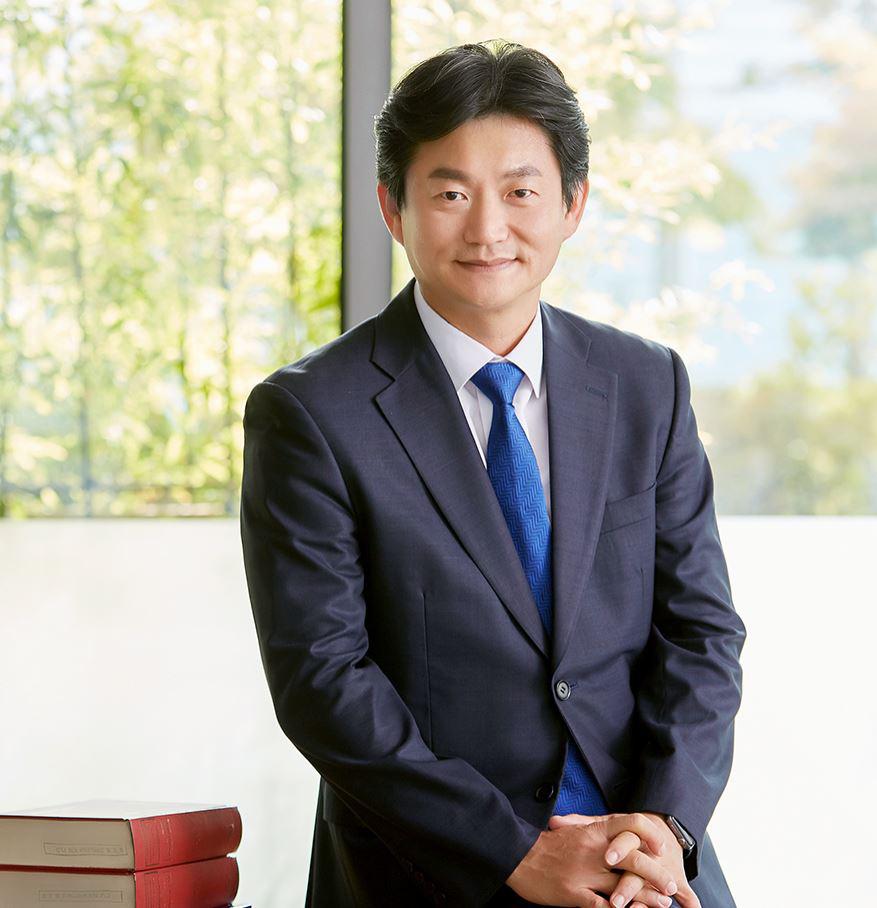AsiaTechDaily – Asia's Leading Tech and Startup Media Platform

Jeong Do-Hyeon, CEO Of Raphas – A World Class Life Sciences Company Pioneering In Microneedle Technology
Jeong Do-Hyeon is the CEO of Raphas, a global bio company unique with microneedle technology, runs from lab to IPO and operates an accelerator program named ’10X’ Startup-X.
The corporate name, Raphas, is a compound of two words: Rapha(healing) + Path (passage). It is a KOSDAQ listed company (listed in November 2019), which possesses the world’s no.1 innovative technology, commercialization ability, and drug development ability.
DEN (Droplet Extension) technology, innovative for its transdermal drug delivery technology based on microneedles, is going through a successful R&D strategy to commercialize the technology into a form mass-produced for cosmetics, medical devices, and medical supplies.
Starting from March 2021, Raphas plans to support startups through an accelerator/open innovation program called ’10X’. With Startup-X (CEO Seri Sheen), to contribute to the startup ecosystem experienced founder.
In an exclusive interview with AsiaTechDaily, Jeong Do-Hyeon says:
The most memorable piece of advice was a slightly modified version of a Korean proverb, ‘Even if the sky falls, there are holes to rise (Every cloud has a silver lining),’ which the advice was that the sky would never fall. This advice gave me confidence and changed my mindset that I can overcome any difficulties that I may face when managing and operating a company. So, I would like to advise people to have a positive mindset at all times, overcoming difficulties wisely.
- Do your best to make each day meaningful and rewarding
- You are the only one that exists in this whole universe. Love yourself and believe in your power
- Plan out your life by thinking about the reason and meaning behind why you exist
Read on to know more about Jeong Do-Hyeon and his journey.
Please tell me about your personal background and What motivated you to get started with your company?
Jeong Do-Hyeon: I started my career as a researcher at a pharmaceutical company after receiving a doctorate in biotechnology. Since graduate school, I have had a lot of interest in commercializing technology into a business, so I always dreamed of starting a business myself. Going through some work experience at a bio-venture company as a researcher, then as a team manager, I gained a better understanding of venture business, jumping in to start a business of my own, co-founding Raphas in 2006.
The Department of Biotechnology initially developed the ‘dissolving microstructure’ technology at Yonsei University, where Raphas had the technology transferred in 2009. While searching for a method where everyone can live a healthy and happy life without pain, the idea of microstructure came into mind from biotechnology and nanotechnology. Semiconductor technology, which is microneedle technology, was grafted onto it, completing the development of mass production technology. After more than 4 years of research, the world’s first new drug delivery system was developed by Raphas, successfully commercializing and launching its product.
What is your current main product, and can you share any previous product pivot story to the current product?
Jeong Do-Hyeon: Currently, Raphas’ main product is a product that is applied to dissolve microneedle patch technology to cosmetics. Raphas owns a patent to manufacture microneedles, a technology selected as the most promising technology in 2020 that penetrates active ingredients or drugs percutaneously using a dissolving DEN method. DEN technology is a manufacturing method that enables the mounting of droplets mixed with dissolving polymer and drugs upon patches and extension to a desirable length. The simple manufacturing process compared to the traditional molding method allowed mass-production possible and reduced the risk of medical deterioration caused by the heating process. This patent technology was first applied in the cosmetics industries and earned success in commercialization.
In Korea, Raphas sells patches with active ingredients through a beauty brand, which are effective for skin trouble, blemish/pigmentation, and wrinkles. It was sold at overseas markets before it started selling in Korea. Starting in Japan, microneedle patches are currently being sold at 20 major global beauty brands across the world in ODM format, in which 80% of sales come from global ODM exports.
By expanding the mass production and efficacy recognized in cosmetics to medical devices and drugs, we are currently conducting clinical trials for loading various vaccines and medical drugs. Ultimately, Raphas aims to contribute to human health by replacing syringes and conveniently delivering drug substances through microneedle patches.
How much money have you raised in total so far? When was the recent funding round?
Jeong Do-Hyeon: After founding the company, we received a total investment of about 50 billion won, and the final funding was public offering funding through an IPO in November 2019. IPO was the most appropriate choice for us because stable financing is especially important for bio-industry, which requires long-term research and essential clinical trials.
What were the internal decision processes in determining when to begin fundraising, and what were the logistics for this? And how many investors have you met so far, and how did you meet these investors, and which channels worked best for you?
Jeong Do-Hyeon: So far, I have met a total of 20 VCs through public IR events and private networking through connections. In particular, I met with venture capitalists who are interested in the field of technology and future industry, sharing information about the effectiveness, authenticity, and value of Raphas’ technology. As a result, we successfully earned investment funds from technology investment-oriented venture capitals such as KDB capital, LNS Venture Capital, and Neoflux.
What are the biggest challenges and obstacles that you have faced in the process of fundraising? If you had to start over, what would you do differently?
Jeong Do-Hyeon: Explaining to investors and customers how microneedle technology could be commercialized was extremely difficult, just based on theory alone. Therefore, proving it through creating a product with the technology was essential, which was very challenging. We had to attract investments to build a factory and make microneedle patches to convince and show how this technology could be commercialized.
Even if I had to start over, I think I would have done it the same way. But the steps would probably be much faster and effective. Although there were various difficulties, Raphas has made many efforts to prove to both investors and customers the excellence of technology through microneedle technology. This process to convince them will not change even if I start over again.
What are your milestones for the next round? And what are your goals for the future?
Jeong Do-Hyeon: Until now, Raphas’ core technology has shown that it can be mass-produced and has succeeded in commercializing in the cosmetic industry. The next goal is to succeed in commercializing it in the pharmaceutical field. Ultimately, I would like to contribute to countries and regions around the world by applying this technology to vaccines and overcome storage and distribution difficulties.
Also, I would like to help venture entrepreneurs who want to start a business with technology. To do so, I am planning to run an accelerator/open innovation program with Startup-X. We greatly hope to create a constructive steppingstone with rising startups. I have always dreamed of helping startups one day, and I can finally put it into action thanks to this great opportunity.
What is the characteristic of the accelerator/open innovation program that is co-operated with Startup-X?
Jeong Do-Hyeon: Raphas, the world’s leading microneedle technology company started in research labs, along with Startup-X, a global impact accelerator founded by a re-founder, are confident that we know more than anyone else about the pains and needs of startups as well as success tips for starting a business.
The ’10X’ accelerating program was planned and suggested by Seri Sheen, CEO of Startup-X. It is a program that aims to discover excellent startups in 10 different industries, exit at least 10 companies, and earn up to 10 IPOs within 10 years. For startups, we provide opportunities for growth through related industry expertise, experience, and capital, whereas we provide open innovation opportunities for medium-sized companies to open new technologies and markets in hopes to build a solid startup ecosystem where everyone can be in a win-win situation.
The selected startups will be supported with diverse accelerator programs such as commercialization and investment attraction training, customized mentoring, Demo Day, and more. Not only this, but there will also be an open innovation program consisting of technical seminars, business collaboration, and global programs. In addition, we are planning to invest more than 100 million won to companies with excellent performance.
How have you attracted users, and with what strategy have you grown your company from the start to now?
Jeong Do-Hyeon: The strategy so far has been focused on developing technology for commercialization and mass production. We also focused on the minimum sales and profits for our business to survive from the beginning, not just relying on attracting investments. I think this is one of the main reasons behind building a successful commercialization strategy.
To constantly appear, be verified, and gain self-sufficiency in the market, and also to supplement, prove, and make progress based on feedback and research is what Raphas has been doing from the start of business. I think this was what allowed our company to continuously grow and develop.
Raphas’ ultimate goal is to become a global healthcare company that contributes to human health and happiness through the development of patch-type vaccines. We are actively utilizing the mass production technology that succeeded in commercializing cosmetic products to our pharmaceutical business.
Which has been the best marketing software tool for the growth of your startup, and why?
Jeong Do-Hyeon: Customers are very precise and smart. They discover the core values and technologies very quickly and even use them to make decisions. It may sound obsolete, but it is important to focus on the essence and communicate with customers through products and services. That is the best marketing as well as the best communication tool with customers.
What do most startups get wrong about marketing in general?
Jeong Do-Hyeon: Following what other companies do without thinking of emphasizing the company’s strength and advantage seems to be the most common mistake many startups make. For Raphas, everything that was done was first in the industry. There was no concept and awareness of microneedles, so we had to be the ones to open up the Path and build up by ourselves. Although there were many difficulties at first, what we did seemed to be correct as we had built our own unique way. Even with an objective perspective, companies that demonstrate their strengths in their own way have more potential to succeed than companies that follow others.
How did you plan to expand globally?
Jeong Do-Hyeon: The patch products, which enabled mass production by applying Raphas’ unique and independent technology, were recognized in the overseas markets for technology and marketability. In November 2012, our product was launched by ODM method in Japan, and in March 2014, we signed an exclusive contract with ‘Rodan and Fields’ of the United States, which succeeded in attracting public attention. Furthermore, in January 2015, our product named ‘Acute Care’ was selected as ‘2014’s Most Innovative Beauty Products’ by Forbes, USA. Our product is still being introduced as a remarkable new product by foreign media. Currently, we have customers from 20 different countries around the world, making sales of microneedle patches in ODM to major global beauty brands. Even after proving the excellence of technology, it still requires effort to communicate and convince the customers and the market as well.
What are the most common mistakes companies make with global expansion?
Jeong Do-Hyeon: Global expansion at an early stage with a lack of internal stability is the most common mistake companies make. It is necessary to take global expansion as a long-term goal, expanding it step by step accordingly to the company’s capabilities.
What are the most common mistakes founders make when they start a company?
Founders find it difficult to set a realistic plan. Since companies are very sensitive to cash flow, founders need to have a realistic cash flow plan before they start and operating a business.
How do you handle this COVID-19 outbreak situation for your company’s survival in the future?
After Covid-19, Raphas has been preparing for a non-contact solution for both work and business models. Microneedle technology is an appropriate technology in the non-contact era, as it can inject vaccines or other medical drugs conveniently without the help of a specialized doctor. Since we are confident that our technology will be a useful solution in the non-contact generation of the post-pandemic era, our direction of the research topic is clear.
What’s the best advice you’ve ever received? And What advice do you have for someone who is interested in doing similar things like yours or in a similar direction?
Jeong Do-Hyeon: The most memorable piece of advice was a slightly modified version of a Korean proverb, ‘Even if the sky falls, there are holes to rise (Every cloud has a silver lining),’ which the advice was that the sky would never fall. This advice gave me confidence and changed my mindset that I can overcome any difficulties that I may face when managing and operating a company. So, I would like to advise people to have a positive mindset at all times, overcoming difficulties wisely.
What are the top-three books that changed your life and why?
Jeong Do-Hyeon: “Karma Management” by Kazuo Inamori was one of the most inspiring books I have read, considering it as the philosophy of management. The book was a present from the CEO of a venture capital that first invested in our company. In addition, books are written by Peter Drucker and books about venture startups also gave me a lot of insights into the early stage of business.
How do you keep yourself motivated every day?
Jeong Do-Hyeon: Steve Jobs used to ask himself every day, “If today were the last day of my life, would I want to do what I’m about to do today?” With this question in mind, I motivate myself by believing that today is another gift of my life, doing the best I can to have a meaningful day.
What are the top three life lessons that you want your (future) sons and daughters to know?
Jeong Do-Hyeon:
- Do your best to make each day meaningful and rewarding
- You are the only one that exists in this whole universe. Love yourself and believe in your power
- Plan out your life by thinking about the reason and meaning behind why you exist
How would you like the startup ecosystem to develop?
Jeong Do-Hyeon: In order to develop the startup ecosystem soundly, an environment to foster startup ideas and nurture business sprouts is indeed essential. To do so, existing medium-and-large-sized conglomerates need to foster startups and take positive consideration of their ideas. In addition, startup founders should also take risks to implement bold challenges into reality.
According to a report, ‘ Startup Korea! Digital Healthcare’ by Korea Chamber of Commerce and Industry, Korean healthcare startups are not found among the top 100 global digital healthcare startups, despite the high-level digital infrastructure of Korea. This includes outstanding medical technology, a high penetration rate of medical institution electronic medical record (EMR), and the world’s no.1 smartphone penetration rate. The biggest reason behind this by 44% was due to strong telemedicine regulation by the government. It is greatly hoped that the government will ease various regulations with flexible thinking and policy management so that startups’ fresh new ideas and attempts can be settled.
You can follow Jeong Do-Hyeon here.
Are you looking to secure investment for your startup or a keen startup enthusiast, keep an eye on our interview section.
Follow Asia Tech Daily to know about the innovative startups and how they are revolutionizing the ecosystem.





